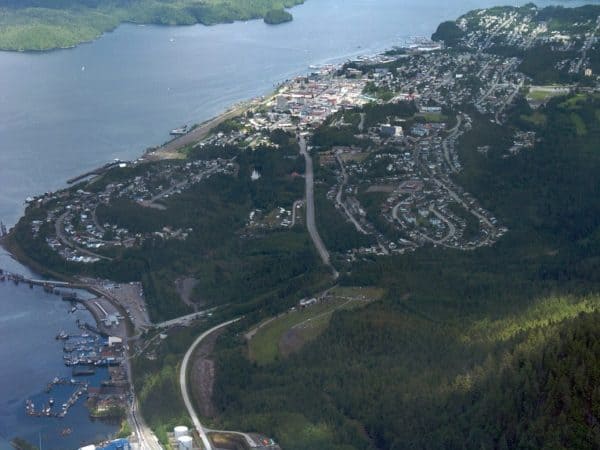
 A group of scientists and climate experts has written to the Canadian Environment Minister Catherina McKenna to ask that the government reject the bid of Petronas led LNG project to build its Pacific Northwest LNG (liquefied natural gas) facility on Lelu Island, British Columbia.
A group of scientists and climate experts has written to the Canadian Environment Minister Catherina McKenna to ask that the government reject the bid of Petronas led LNG project to build its Pacific Northwest LNG (liquefied natural gas) facility on Lelu Island, British Columbia.
Endorsed by more than 90 academics and environmentalists from across Canada, the United States and around the world, the letter argues that the project would add between 18.5 and 22.5 per cent to B.C.’s total greenhouse gas (GHG) emissions, effectively making it impossible for the province to meet its current GHG reduction targets.
“Honouring the commitment Canada made in Paris to limit global warming to well below 2.0 degrees above pre-industrial levels will require a massive effort to reduce emissions,” say the signatories, which include environmentalist David Suzuki, former NASA scientist James Hansen, biologist and Green Party candidate Lynne Quarmby and University of Victoria political scientist James Tully. “We must begin by rejecting plans that would increase GHG emissions and lock us in fossil fuel extraction for decades to come.”
B.C. environment minister Mary Polak has criticized the letter for not acknowledging the overall reductions in GHG emissions that result when LNG replaces so-called dirtier fossil fuels such as coal and diesel. “Their assumption from the beginning doesn’t meet with reality,” Polak said.
PNW LNG itself has also fired back in a similar vein, saying that even though the project will produce measurable GHG emissions by supplying natural gas to coal-burning countries in Asia and helping them lower their GHG emissions, the overall result will be positive for global emissions.
“Pacific NorthWest LNG, once in operation, would supply the world’s cleanest LNG to our partners in Asia who are eager to import the same natural gas that British Columbians use in their daily lives,” says Spencer Sproule, PNW LNG’s senior adviser of corporate affairs.
According to a review produced by Environment and Climate Change Canada (ECCC) in February of this year, the project expected to produce 19.2 megatonnes of LNG per year at full capacity and will contribute between 6.5 and 8.7 megatonnes per year of CO 2 per year and about 160 to 210 megatonnes of GHG’s over its 25-year lifetime.
Backed by a consortium led by Malaysia’s state-owned oil company Petronas, the PNW LNG project comes with an estimated total cost of $36 billion, which includes natural gas production in northeastern B.C., pipelines to the coast and the planned $11.4-billion export terminal that will super-cool the natural gas so that it can be shipped by tanker to Asia.
The federal environmental assessment of the PNW project will include a new standard requiring upstream estimates of GHG emissions, meaning that the impact study must take into account all production stages including those prior to the fuel’s arrival at the export facility, such as extraction, processing and pipeline transmission of the natural gas.
On March 21 of this year, Ms. McKenna granted the Canadian Environmental Assessment Agency an added three months to finish its impact study of the PNW project. The CEAA had pointed to new data presented by PNW LNG earlier in the month as cause for the extension.
Leave a Reply
You must be logged in to post a comment.



 Share
Share Tweet
Tweet Share
Share




Comment